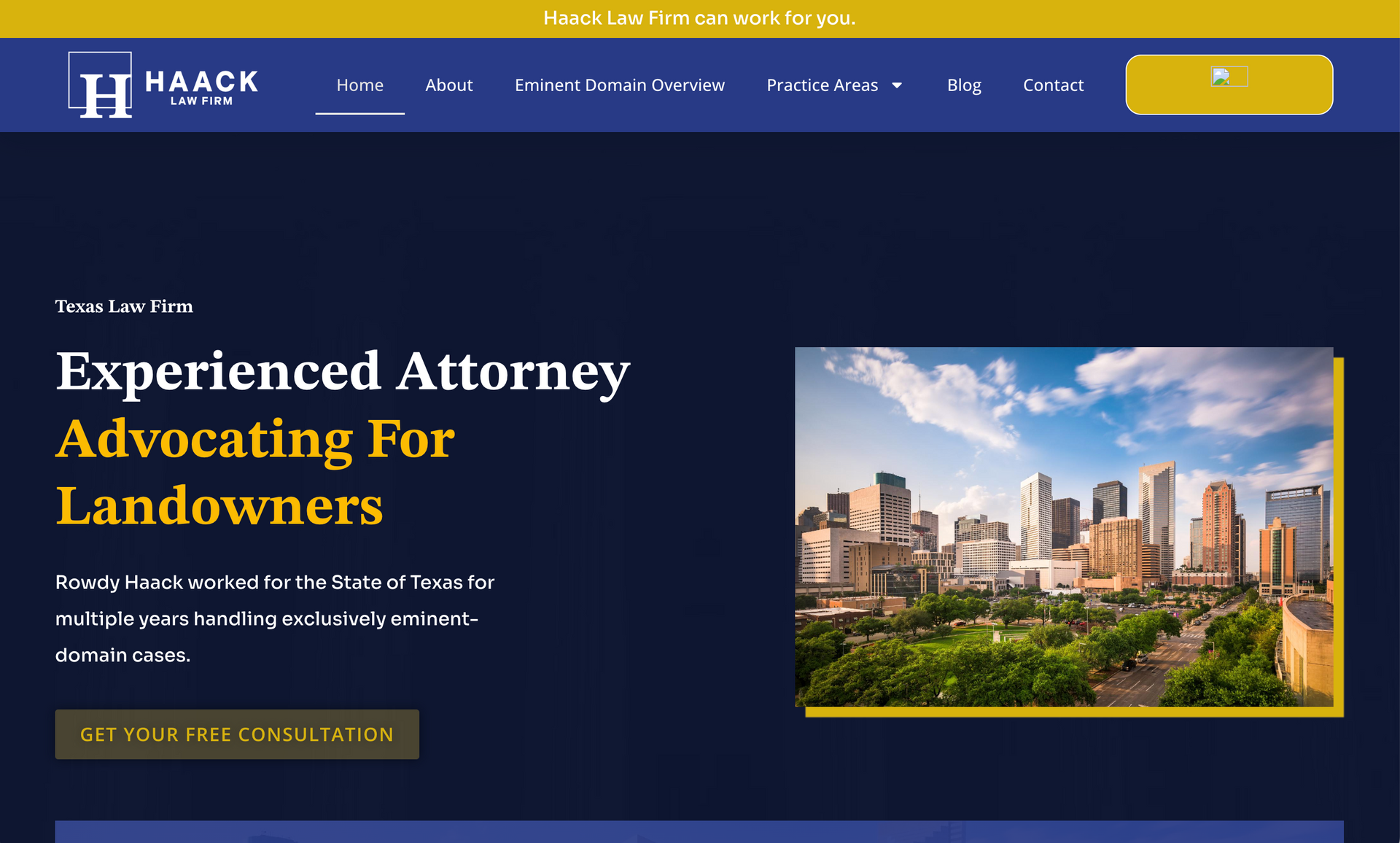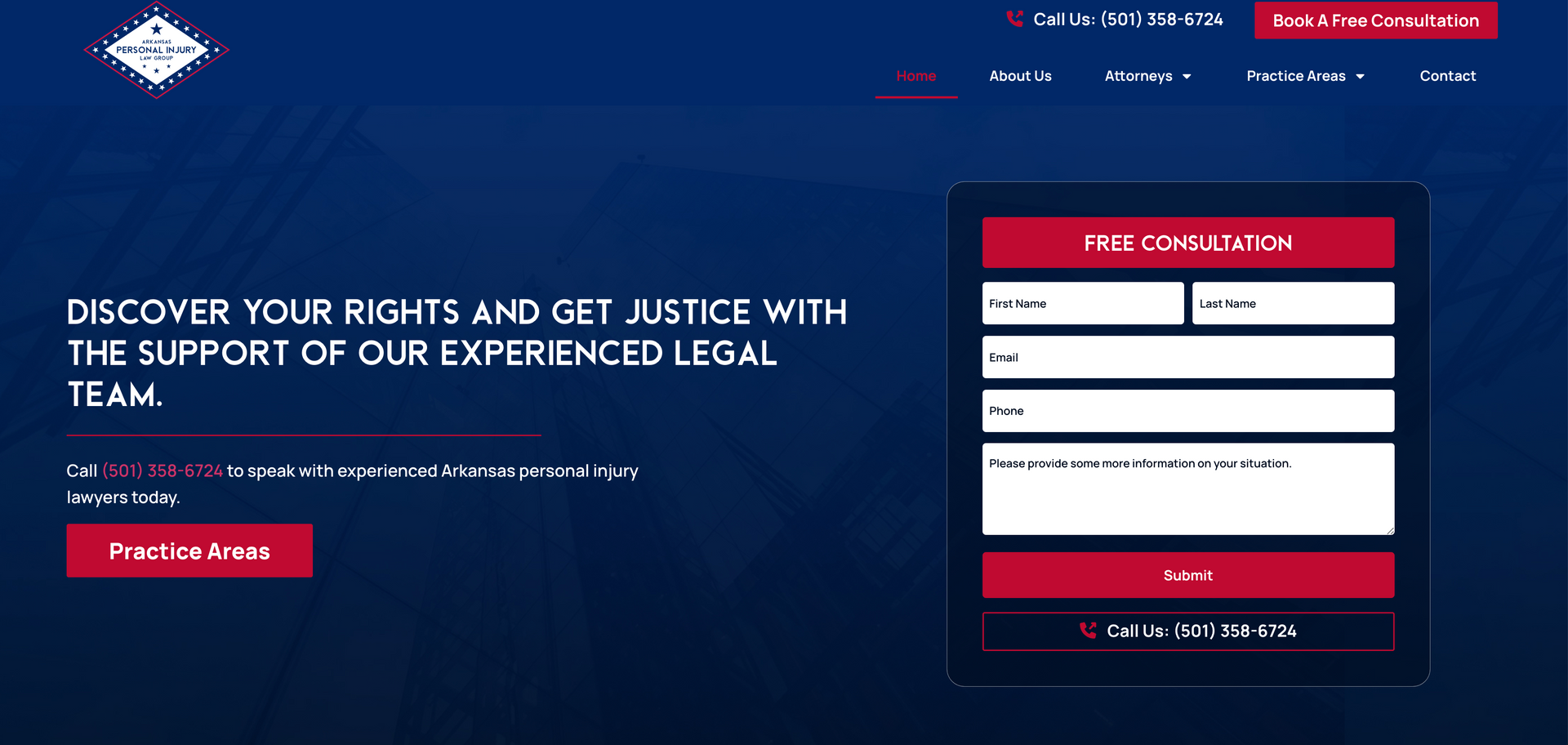Key Strategies in Digital Marketing for Lawyers
Digital Marketing For Lawyers
Digital marketing for lawyers stands as a linchpin in a competitive legal landscape, essential for law firms aspiring to generate client leads and expand their business. While attorney referrals have traditionally fueled practice growth, the digital realm opens up a broader and more diversified client acquisition channel. This comprehensive guide delves into sophisticated digital marketing strategies, elucidates their significance, and provides actionable insights for seamless implementation to align with your firm’s strategic goals.
What is Digital Marketing for Lawyers?
Digital marketing for lawyers encompasses a suite of online strategies designed to enhance brand visibility and catalyze business growth. It extends beyond the scope of optimizing your law firm’s website — a foundational aspect, indeed — to embrace a holistic approach that fortifies your online reputation and credibility. Key strategies in a lawyer’s digital marketing arsenal include:
- Advanced search engine optimization (SEO) techniques tailored for the legal industry
- Precision-targeted pay-per-click (PPC) advertising campaigns
- Strategic engagement across popular and emerging social media platforms, including LinkedIn, Facebook, Twitter, and Instagram
- Email marketing, with a focus on personalized client communication and newsletter dissemination
These strategies are not standalone; they integrate with traditional outreach efforts like networking events, print media, and community involvement, providing a comprehensive approach to client engagement.
Why is Digital Marketing Beneficial for Lawyers?
In an era where most people's first instinct is to search online for any service, digital marketing stands as a beacon for law firms. It's not just about having a presence online; it’s about being found easily and making a connection swiftly. A strong digital marketing strategy ensures that when potential clients are searching for legal advice, your firm shows up as a top contender. It’s about being accessible across various digital channels where your future clients are already active. Moreover, digital marketing allows you to measure the impact of your efforts through analytics, adjust your strategies in real-time, and optimize your marketing budget for the best return on investment.
Extending Your Reach with Comprehensive Digital Marketing
Your firm's digital marketing strategy should be as multifaceted as the internet itself. This means not just creating a website, but making sure it’s optimized for search engines and user experience. It involves crafting compelling content that answers the legal questions your prospective clients are asking and sharing this content across social media and other platforms to establish your firm as a thought leader. It's also about understanding the nuances of online advertising, harnessing the precision of pay-per-click campaigns to target specific demographics, and making sure your firm appears in local searches when and where people need legal assistance.
Setting Your Digital Legal Marketing Goals
Success in digital marketing begins with clear, achievable goals. Are you looking to grow your client base, increase your firm's visibility, or establish yourself as a local authority in a specific area of law? Each goal requires a tailored strategy. For instance, increasing your client base might involve a combination of SEO, PPC, and social media outreach, while establishing local authority could focus on local SEO and community engagement.
Ready to Grow Your Law Firm
Marketing Services?
Click the button below for a free proposal
Understanding Your Target Audience
Deeply understanding your audience is key to effective messaging. It's not enough to know their legal needs; you need to understand their behaviors, concerns, and the digital platforms they frequent. Use this information to craft messages that resonate, offer solutions, and establish trust. For instance, if you’re targeting small businesses for your corporate law practice, your content should address their specific legal concerns and be shared in LinkedIn groups where business owners gather for advice.
Maximizing SEO for Lawyers
SEO is about more than keywords; it's about relevance and authority. Your content should not only include terms your potential clients are searching for but also provide the answers they need. This builds trust with both your audience and search engines. A mobile-friendly website, fast loading times, and secure browsing (HTTPS) are now prerequisites for good SEO, as more people use their phones to find legal help.
Capitalizing on PPC Advertising
PPC can be a game-changer for law firms, but it needs to be done wisely. Keywords in the legal industry can be expensive, so it's crucial to ensure your ads are well-targeted and compelling. Use A/B testing to see what messaging works best and continually refine your ads for the highest conversion rates. Your PPC ads should align with the intent of the searcher—someone looking for a DUI attorney needs to see that specific service advertised, not just general legal services.
Building a Robust Offsite Presence
Offsite digital marketing involves creating a strong presence outside of your own website. This includes writing guest blog posts for reputable legal websites, engaging in online legal forums, and maintaining a strong, active presence on platforms like Avvo or FindLaw. These efforts can drive traffic back to your site and improve your SEO while also building your reputation in the legal community.
Link Building with Integrity
Link building is essential, but it must be done ethically. Aim for quality over quantity; a few links from well-respected legal sites are worth more than many links from low-quality directories. Guest articles, partnerships, and legal directories are all respectable ways to build links.
Harnessing the Power of Social Media
Use social media to tell your firm's story and connect with clients on a personal level. Share insights into your practice, discuss how you've solved complex legal issues, and highlight your community involvement. Social media is a two-way conversation; engage with your followers, answer their questions, and participate in discussions to build a loyal following.
Engaging Through Email Marketing
Email marketing allows you to stay in front of your clients and prospects regularly. Send out updates on law changes that could affect them, tips for avoiding legal issues, and case studies showcasing your successes. Personalization is key—segment your audience and tailor your emails to each segment for higher engagement rates.
Cultivating Positive Client Reviews
Positive client reviews are a form of social proof that can significantly influence the decision-making process of potential clients. Encourage your clients to share their experiences online. Whether it’s on Google, Yelp, or lawyer-specific review sites, these testimonials can bolster your firm’s credibility. Actively managing your reviews by responding to feedback demonstrates your commitment to client satisfaction and can mitigate the impact of any negative reviews. Make the process easy by providing links and clear instructions on where and how to leave reviews.
Top Digital Marketing Quick Tips for Lawyers
- Optimize Your Website for Mobile: With the majority of searches now on mobile devices, ensure your website is responsive and mobile-friendly.
- Use Local Keywords: For law firms, local clients are often the bread and butter. Optimize your content with local keywords and phrases.
- Maintain an Active Blog: Share regular insights on legal developments, case studies, and informative content that can help position you as an expert in your field.
- Monitor Your Online Reputation: Keep track of what is being said about your firm online and respond appropriately. Use reputation management tools if necessary.
- Invest in Professional Photos and Graphics: Visual appeal matters. Ensure your website and social media profiles feature professional-quality photos and graphics.
- Stay Informed on Digital Trends: The digital landscape is always changing. Keep up with the latest trends in digital marketing and SEO to stay ahead.
Measuring the Success of Your Digital Marketing Strategies
To measure the effectiveness of your digital marketing efforts, use tools like Google Analytics to track website traffic, engagement, and conversion rates. Pay attention to metrics like:
- Bounce Rate: The percentage of visitors who navigate away from the site after viewing only one page. A high bounce rate may indicate that your site’s content is not meeting the needs of your visitors.
- Traffic Sources: Understanding where your traffic comes from (organic search, direct visits, social media, etc.) can help you know which marketing efforts are paying off.
- Conversion Rate: The percentage of website visitors who take a desired action, like filling out a contact form. This is a direct indicator of the effectiveness of your website and campaigns.
Regularly review these metrics and adjust your strategies accordingly to ensure you are getting the best return on investment for your marketing efforts.
Working with a Legal Marketing Company to Manage All of Your Digital Marketing Strategies
For law firms that lack the time or in-house expertise to manage complex digital marketing campaigns, partnering with a specialized legal marketing agency can be a strategic move. A dedicated marketing agency can bring a wealth of experience and industry-specific knowledge to the table, handling everything from website development and SEO to content creation and social media management. This collaboration allows your firm to concentrate on legal work while the marketing experts focus on driving your firm’s online presence and client acquisition efforts. Contact us for your Law Firm Digital Marketing needs. At Scale and Sword Advertising, we specialize in law firm marketing, whether it's for a personal injury law firm, immigration law firm, family law firm, or criminal defense lawyer, we are here to help you
Conclusion
In conclusion, digital marketing is an indispensable part of a modern law firm's business strategy. It requires a multifaceted approach, embracing everything from SEO and PPC to social media and email marketing. By setting clear goals, understanding your audience, creating quality content, and staying engaged with clients across various platforms, your firm can increase its online visibility, attract more clients, and establish a strong digital presence. Remember to measure your results, refine your strategies, and consider professional assistance to maximize your digital marketing success.
Ready to Grow Your Law Firm
Marketing Services?
Click the button below for a free proposal
Let’s talk about your project
Fill in the form or call to set up a meeting at 302 285 9806






